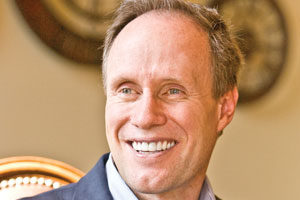Business Conference "Pathways to Profit," March 15-16, in Madison, Wisconsin, attendees will have the opportunity to hear and interact with many different speakers, including Stephen M.R. Covey, who is making his mark in the business world for his insight on trust and how trust can make organizations more profitable, people more promotable and relationships more energizing. Stephen M.R. Covey will zero in on the trust issue when he delivers the opening keynote address. During his "Building Your Future on Trust" keynote, Covey will outline why and how to make building trust an explicit goal, how individuals perceive the trustworthiness of others and how to use the "language of trust" as an important cultural lever.
Following his keynote address, Covey will be leading one of the specialty sessions that take place throughout the two-day event.
"PDPW’s 2011 Business Conference is jam-packed with specialty sessions, and attendees can pick and choose from among the 15 topics and decide which sessions they want to participate in," Eric Hillan, PDPW president and dairy producer from Ladysmith, Wisconsin, explains. "We’re talking a variety of topics and all delivered by industry experts. It’s like having 35-some consultants or resources in one place for two days and all are ready to share information to help us become better business people."
To provide a preview of some of the specialty sessions, Progressive Dairyman asked the Wednesday Morning Specialty Session speakers to comment on their presentations.
Click on a link below to see the presenter responses of a specific topic:
by Matthew Keifer
by Dr. Randy Shaver and Paul Dyk
by Pat Hoffman
by Rachael Prochaska and Sara Swenson
by Dr. Gregg Hadley
by Dr. Christine Hoang
Before OSHA Arrives on Your Dairy
Presented by:
Matthew Keifer, MD
National Farm Medicine Center
Q. Why is this topic important?
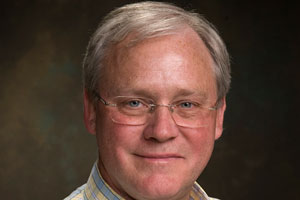
KEIFER: As dairy operations get larger they may cross a threshold in terms of size that puts them under the jurisdiction of OSHA. Agriculture has generally not dealt with OSHA but once large enough an operation may face inspection. There is no comprehensive guidance for how to be ready.
Standards that OSHA enforces and that guide safety in other industries do not apply to agriculture. However, some help is available. This workshop will discuss what an operation can expect to experience during an OSHA inspection and will provide some guidance on how to be prepared when OSHA does come.
Q. What do you hope attendees will take away from this presentation?
KEIFER: Attendees should understand what OSHA is about, who OSHA is likely to inspect, what OSHA will do if they inspect and how an operation can improve safety on the farm and be prepared if an inspection does occur.
Finally attendees will receive information on what resources exist to assist the operation in becoming safer and healthier.
(Keifer will be joined by panelists Mary Bauer, OSHA compliance assistance specialist, and Pedro Serrano, Washington State OSHA program technical specialist.)
Managing Dairy Rations with High Grain Prices
Presented by:
Dr. Randy Shaver, University of Wisconsin–Madison (right)
Paul Dyk, University of Wisconsin–Extension (below right)
Q. Why is this topic important?
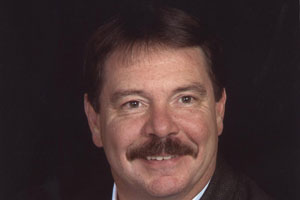
SHAVER: The highest expense on every dairy farm is feed. Managing this expense is critical to the success of a dairy farm.
Income over feed cost (IOFC) is an important indicator that can be used to benchmark a farm’s relative feed expense.
Developing feeding strategies that reduce feed cost, but maintain or improve IOFC and feed efficiency (Milk or FCM per DMI) when trying to reduce feed cost is crucial.
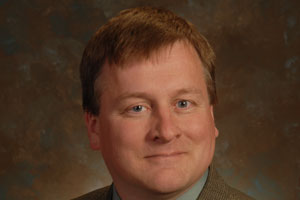
Q. What do you hope attendees will take away from this presentation?
SHAVER: Using the four-state Dairy Extension Feed Cost Evaluator, results from an on-farm survey comparing feed costs on high producing dairy farms will be given.
Dairy producers will see how the survey uses real farm prices, which will provide guidelines for their operations. Producers will also learn the potential opportunities and possible pitfalls associated with manipulating feeding programs to reduce cost.
DYK: In my part of the presentation I plan on presenting a tool that can help producers monitor feed costs. I hope this tool will help producers not only track their own feed costs but benchmark their costs against other farms.
Taking the Bite Out of Heifer Raising
Presented by:
Pat Hoffman
University of Wisconsin–Extension
Q. Why is this topic important?
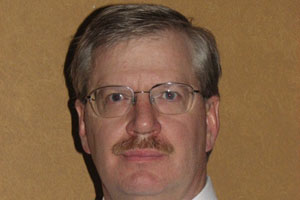
Research at the University of Wisconsin has been examining a number of alternative feeding and management strategies to reduce the economic and environmental impact of rearing dairy heifers. Findings from these studies have the potential to improve Wisconsin dairy farm profitability and nutrient management programs.
Q. What do you hope attendees will take away from this presentation?
HOFFMAN: Alternative feeding and management practices for dairy replacement heifers challenge many traditional concepts of heifer rearing.
The presentation will define changes in heifer performance, economic cost and nutrient management in detail, which will aid dairy producers in making informed management decisions in regard to alternative dairy replacement heifers rearing practices.
Making Decisions Using REAL Numbers
Presented by:
Rachael Prochaska, Badgerland Financial Services (right)
Sara Swenson, Lookout Ridge Consulting (below right)
Q. Why is this topic important?
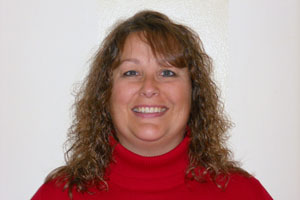
PROCHASKA & SWENSON: There are times when dairies need to compliment traditional practices with innovative approaches, to enable strategic decision-making.
Such decisions will help position dairy operations for the future.
The topic of managerial accounting is important because we want producers to embrace their financials and use them for more than tax compliance purposes.
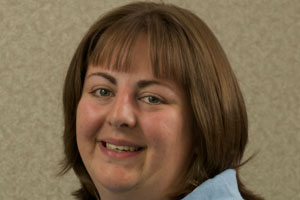
We want producers to have high-quality management level financials which will allow them the ability to make more informed management decisions in their farm business.
Q. What do you hope attendees will take away from this presentation?
PROCHASKA & SWENSON: Our goal with this presentation is to modify how producers use their financials, increase familiarity of managerial accounting and raise the awareness of managerial accounting to help producers make important management decisions.
The presentation will address questions like…Why should I move to managerial accounting? How can I use my financials to make decisions? How can I use managerial accounting to communicate with internal and external stakeholders?
Our presentation will not go into detail about accounting procedures, but will focus on how to effectively create a system that allows you to utilize your financial statements.
What’s the Culture of Your Business?
Presented by:
Dr. Gregg Hadley
University of Wisconsin–River Falls, UW-Extension and the Center for Dairy Profitability
Q. Why is this topic important?
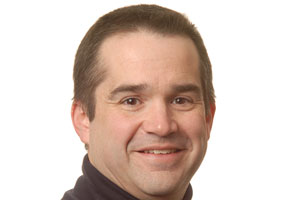
HADLEY: Hiring the right employee is important. When faced with hiring an employee, many managers merely hire any "warm body" and hope that it works out. Others will make sure that they hire a person with the technical skills needed to do the job.
If a new hire doesn't fit the culture of the workplace, which is based on the work and social characteristics of the manager, the employee and employer will probably not be happy with the results.
This session examines how the manager's work and social characteristics should influence the hiring decision that they have a more productive and satisfying workplace culture.
Q. What do you hope attendees will take away from this presentation?
HADLEY: I hope that managers will understand how taking a little more time in the hiring process can lead to fewer workplace problems, better retention and a more efficient operation.
Use 'em Properly or Lose 'em: Make Sure Your Dairy is Doing it Right
Presented by:
Dr. Christine Hoang
Scientific Activities Division of the American Veterinary Medical Association
Q. Why is this topic important?
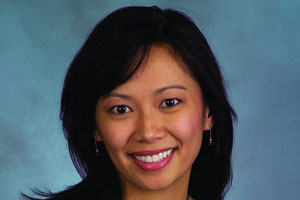
HOANG: I think this topic is really important to the food animal sector of the agricultural industry in general.
Yet, with the dairy industry being among the most commonly recognized residue violators, it is even more essential that we, as veterinarians, reach out to the producers to ensure that there is an understanding of how these drugs should be used, and the very serious consequences for all of us if they are not used appropriately.
Q. What do you hope attendees will take away from this presentation?
HOANG: I would hope that the attendees walk away from the presentation with the understanding that we are in this together. We are here to help and to work with them in whatever capacity that we can.
So, hopefully, if the information isn’t in there somewhere, they would feel comfortable enough to reach out to us and we’ll try to help them find it.
To learn more about the 2011 PDPW Business Conference or to register, visit www.pdpw.org or call (800) 947-7379. PD

-
Karen Lee
- Midwest Editor
- Email Karen Lee
